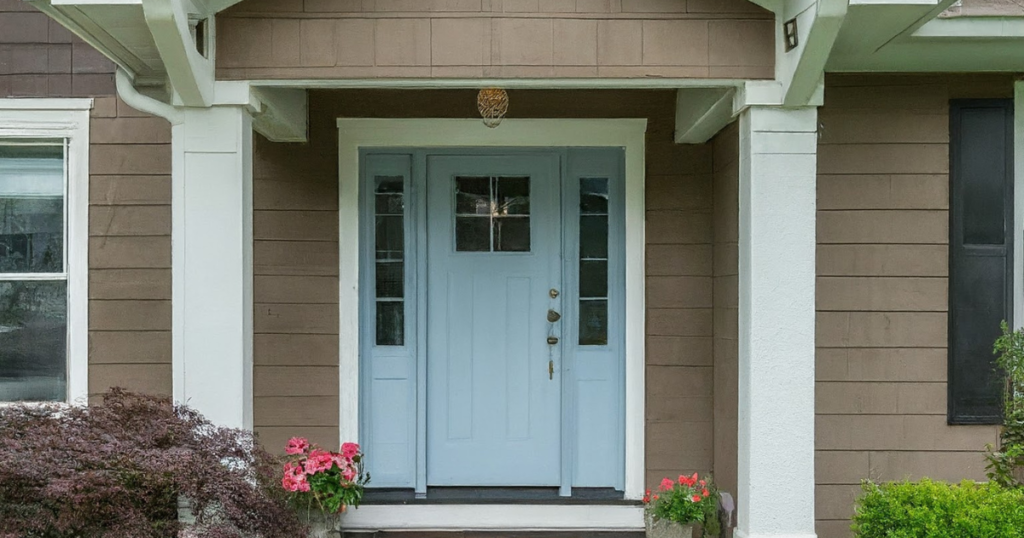Top 10 Tips for First-Time Homebuyers
Introduction
Buying your first home is an exciting milestone, but it can also be overwhelming with so many factors to consider. From choosing the right mortgage to ensuring the property is in good condition, being well-prepared can make the process smoother and more enjoyable. This guide provides the top 10 tips for first-time homebuyers to help you navigate the housing market confidently and make informed decisions.

1. Understand Your Budget
The first step in the homebuying process is understanding your budget. Knowing how much you can afford will help you narrow down your options and prevent future financial strain.
- Calculate Your Monthly Expenses: Include your existing expenses, such as utilities, groceries, and other living costs, along with potential mortgage payments.
- Factor in Hidden Costs: Remember to account for property taxes, insurance, maintenance, and other expenses that come with homeownership.
2. Get Pre-Approved for a Mortgage
Getting pre-approved for a mortgage is crucial before you start house hunting. A pre-approval letter shows sellers that you’re a serious buyer and gives you a clear idea of your borrowing capacity.
- Research Lenders: Shop around for lenders to find the best interest rates and terms.
- Gather Financial Documents: Prepare documents such as pay stubs, tax returns, and bank statements for the pre-approval process.
3. Explore Different Mortgage Options
There are several mortgage options available, each with its own benefits and drawbacks. Understanding the differences can help you choose the best fit for your financial situation.
- Fixed-Rate Mortgage: Offers a consistent interest rate and monthly payment over the life of the loan.
- Adjustable-Rate Mortgage (ARM): Features lower initial rates that may increase over time, depending on market conditions.
- FHA Loans: Backed by the Federal Housing Administration, these loans are ideal for first-time buyers with lower down payments and credit scores.
4. Work with a Real Estate Agent
A knowledgeable real estate agent can be an invaluable resource for first-time homebuyers. They have expertise in the local market and can guide you through each step of the process.
- Find an Experienced Agent: Look for an agent with experience in the areas you’re interested in and a track record of successful transactions.
- Communicate Your Needs: Clearly convey your budget, preferences, and must-have features to your agent.
5. Research Neighborhoods
Choosing the right neighborhood is just as important as selecting the right home. Consider factors such as location, amenities, and community when evaluating potential areas.
- Visit Neighborhoods: Spend time in different neighborhoods to get a feel for the area, including commuting times and accessibility.
- Check School Districts: If you have children or plan to in the future, research the quality of local schools.
6. Consider Future Needs
When buying a home, think about your long-term needs and how the property will accommodate them.
- Plan for Growth: Consider whether the home can accommodate a growing family or changing lifestyle.
- Evaluate Resale Potential: Assess the property’s potential for appreciation and resale value in the future.
7. Attend Open Houses and Showings
Attending open houses and showings is essential for evaluating potential homes in person. This gives you a chance to see the property’s condition and layout firsthand.
- Ask Questions: Don’t hesitate to ask the seller or agent about any concerns or details about the property.
- Take Notes: Keep track of key features, pros, and cons of each home you visit for easy comparison.
8. Conduct Thorough Inspections
A professional home inspection is critical to identify any underlying issues with the property. This can save you from unexpected repairs and expenses after purchasing the home.
- Hire a Qualified Inspector: Choose an inspector with experience and positive reviews to ensure a thorough evaluation.
- Review the Inspection Report: Pay close attention to any major concerns or costly repairs that may need addressing.
9. Negotiate the Offer
Negotiating the offer is a common part of the homebuying process. Work with your real estate agent to make a competitive offer that reflects the home’s value and market conditions.
- Consider Contingencies: Include contingencies in your offer to protect yourself in case of issues, such as financing or inspection contingencies.
- Be Prepared to Compromise: Understand that negotiation involves give and take, so be willing to adjust your terms if necessary.
10. Prepare for Closing Costs
Closing costs are expenses associated with finalizing the home purchase, including loan fees, taxes, and insurance. Budgeting for these costs will help you avoid surprises at the closing table.
- Review the Loan Estimate: Your lender will provide a loan estimate detailing the expected closing costs, allowing you to plan accordingly.
- Negotiate with the Seller: In some cases, you may be able to negotiate with the seller to cover part of the closing costs.

Conclusion
Buying your first home is a significant investment and can be both exciting and challenging. By understanding your budget, exploring mortgage options, and considering future needs, you can make informed decisions that align with your goals. With careful planning and guidance from professionals, you’ll be well-equipped to navigate the homebuying process and find the perfect home for your needs.
FAQs
1. How much should I save for a down payment on my first home?
For most conventional loans, you’ll need to save at least 20% of the home’s purchase price for a down payment. However, there are options for lower down payments, such as FHA loans.
2. What is a good credit score for buying a home?
A good credit score for buying a home is typically 620 or higher. However, some lenders may offer loans to buyers with lower scores, but with higher interest rates.
3. How long does it take to buy a house?
The homebuying process can take anywhere from 30 to 60 days, depending on factors like financing, inspections, and negotiations.
4. What is PMI, and do I need it?
PMI (Private Mortgage Insurance) is required if your down payment is less than 20%. It protects the lender in case of default and is typically added to your monthly mortgage payment.
5. How can I improve my chances of getting a mortgage approval?
Improving your credit score, saving for a larger down payment, and reducing debt can enhance your chances of mortgage approval.
